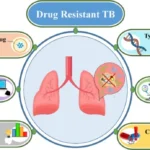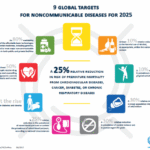While healthcare systems play a vital role in treating illnesses and promoting well-being, achieving the ambitious targets of Sustainable Development Goal (SDG) 3, “Good Health and Well-being,” requires a broader perspective that extends beyond the clinic walls. The social determinants of health – the conditions in which people are born, grow, live, work, and age – have a profound impact on health outcomes and health equity. Addressing these underlying social, economic, and environmental factors is essential for creating healthier societies and achieving SDG 3 for all.
The social determinants of health encompass a wide range of factors, including poverty, education, housing, food security, employment, social support networks, and exposure to violence and environmental hazards. These factors interact in complex ways to shape individuals’ health behaviors, access to resources, and overall health status. Ignoring these determinants and focusing solely on medical interventions will not be sufficient to achieve significant and sustainable improvements in population health and well-being.
Poverty is a fundamental social determinant of health. Individuals and families living in poverty often experience food insecurity, inadequate housing, limited access to education and healthcare, and increased exposure to environmental risks. These factors can lead to higher rates of chronic diseases, infectious diseases, and premature mortality. Addressing poverty through social protection programs, job creation initiatives, and equitable economic policies is crucial for improving health outcomes and reducing health inequities.
Education is another powerful determinant of health. Higher levels of education are associated with better health literacy, healthier behaviors, and increased access to employment opportunities and resources. Investing in quality education for all, particularly for girls and marginalized populations, can have significant positive impacts on health and well-being across the life course.
Housing conditions also play a critical role in health. Inadequate housing, overcrowding, and lack of access to clean water and sanitation can increase the risk of infectious diseases and respiratory problems. Ensuring access to safe, affordable, and adequate housing is a fundamental requirement for promoting health and well-being.
Food security, having reliable access to a sufficient quantity of affordable, nutritious food, is essential for good health. Food insecurity can lead to malnutrition, weakened immune systems, and increased susceptibility to chronic diseases. Policies that promote sustainable agriculture, improve access to healthy foods, and address food deserts are crucial for ensuring food security and improving population health.
Employment and working conditions also have a significant impact on health. Unemployment, precarious work, and exposure to hazardous working conditions can lead to stress, poor mental health, and increased risk of occupational injuries and illnesses. Promoting decent work opportunities, ensuring safe working environments, and providing social protection for unemployed individuals are important for protecting and promoting worker health.
Social support networks and community cohesion can buffer the negative effects of stress and promote mental and physical well-being. Investing in community-based programs that foster social connections and provide support for vulnerable individuals and families can have significant positive health impacts.
Finally, environmental factors, such as air and water pollution, exposure to toxic substances, and climate change, pose significant threats to human health. Implementing policies that protect the environment, reduce pollution, and mitigate the effects of climate change are essential for preventing a wide range of diseases and promoting environmental health.
Addressing the social determinants of health requires a multisectoral approach that goes beyond the traditional healthcare system. Collaboration between health, education, housing, labor, environment, and social welfare sectors is essential for developing and implementing effective policies and interventions. Engaging communities and individuals in the process is also crucial for ensuring that interventions are relevant, culturally appropriate, and sustainable.
By recognizing and addressing the powerful influence of the social determinants of health, we can move beyond a purely clinical approach to health and well-being. Creating healthier societies requires tackling the underlying social, economic, and environmental factors that shape our lives and our health. This comprehensive approach is essential for achieving the ambitious targets of SDG 3 and ensuring good health and well-being for all.
















